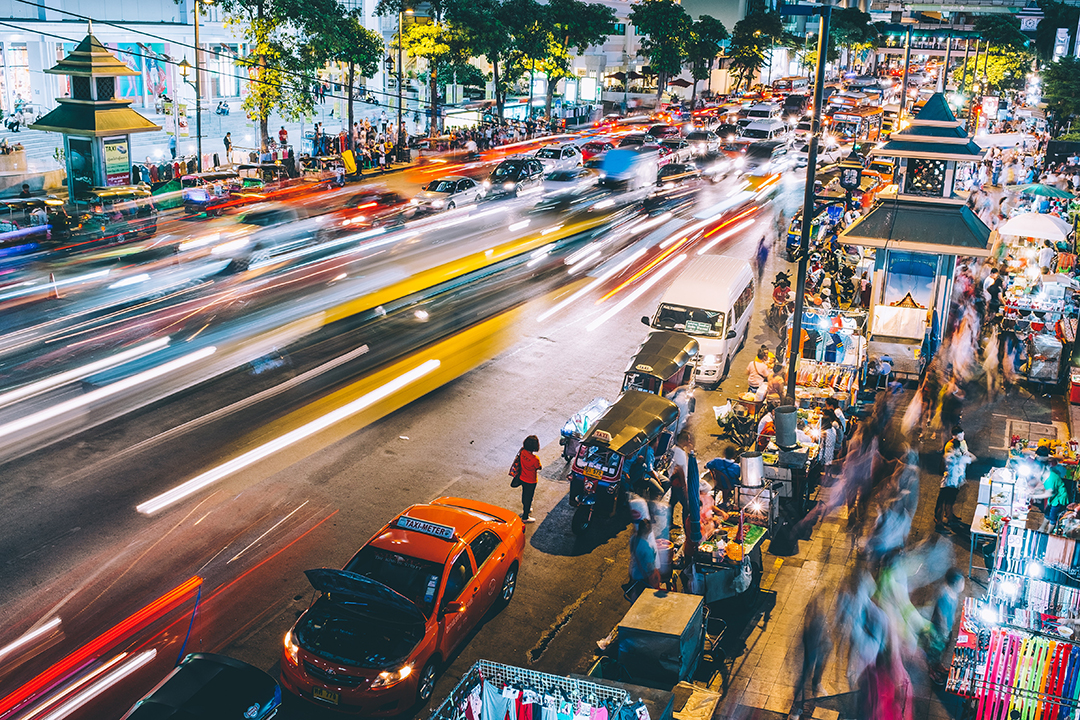Since the adoption of the 2030 Agenda for Sustainable Development, a shift has occurred in Asia and the Pacific. The Sustainable Development Goals have left a visible imprint in our schools, our businesses and our governments.
At our sixth Asia Pacific Forum on Sustainable Development 2019, our region’s readiness was clear. Hundreds of people from civil society, businesses and governments came together to enthusiastically demonstrate their early achievements, review progress and prepare for the global stage at UN Headquarters where fourteen of our countries will be presenting their Voluntary National Reviews in July. The countries of Asia and the Pacific are clearly gaining speed in SDG planning, but are they ready for takeoff?
Although our region is primed for transformative change, our recent work finds this has yet to take effect. On its current trajectory, Asia and the Pacific will not achieve any of the 17 Sustainable Development Goals by 2030. The Asia and the Pacific SDG Progress Report for 2019 reveals that while the region has made significant headway towards poverty reduction (Goal 1) and quality education (Goal 4), the pace of implementation in other areas is insufficient. Ensuring good health and well-being (Goal 3) and achieving gender equality (Goal 5) are progressing too slowly. And the region is moving backwards when it comes to ensuring access to clean water and sanitation (Goal 6), promoting decent work and economic growth (Goal 8), and promoting sustainable consumption (Goal 12). While differences exist between the different corners of this vast region, the bottom line remains: accelerated action is needed.
To accelerate progress, we must invest in our people. Evidence from ESCAP’s 2018 Social Outlook for Asia Pacific suggests that increased public spending to match the global average could pull over 300 million people out of moderate poverty and 52 million people out of extreme poverty by 2030. In this scenario, countries such as Armenia, Fiji, Iran, Tajikistan and Viet Nam could eliminate poverty by 2030 (Goal 1). By increasing investment in social protection to reach the global standards, the region could boost the GDP growth rate by 0.7 percent while reducing inequalities and enabling its vulnerable populations to buffer external shocks, build resilience, and escape deprivation.
The good news is that this increased investment in people is affordable for most countries in Asia and the Pacific. ESCAP’s Economic and Social Survey of Asia and the Pacific 2019 estimates that achieving the SDGs by 2030 requires an annual additional investment of USD 1.5 trillion for developing countries in the region, out of which USD 669 billion is for ending poverty and hunger and meeting the health and education Goals. This investment in people is possible. Most countries could develop the necessary fiscal space through a wider tax base and more efficient public spending.
Investing in people is also about empowerment. Evidence from the 2019 research Accelerating progress: An empowered, inclusive and equal Asia Pacific shows the empowerment of vulnerable groups and greater inclusion contribute to reducing inequality and accelerating the progress towards a broad array of the SDGs. Where women’s participation in household decisions is increased, for example, health outcomes for children also improve (SDG Target 2.2). Similarly, increasing access to information and justice and expanding participation in environment matters is linked with improved outcomes across the core environment-related SDGs.
The Sustainable Development Goals are an investment plan that can help countries in Asia and the Pacific overcome rising economic uncertainty and tap into a trillion-dollar opportunity for new businesses, products and services that can power the future. An investment plan that can eliminate the lingering scourge of poverty and the rising tide of inequality. As the region is shifting its focus from planning to implementation, investing in the Sustainable Development Goals is the only way to ensure the Asia-Pacific region takes off with everyone on board.
This article was authored by Kaveh Zahedi, Deputy Executive Secretary, Sustainable Development, United Nations Economic and Social Commission for Asia and the Pacific, and Van Nguyen, Sustainable Development Officer, United Nations Economic and Social Commission for Asia and the Pacific
